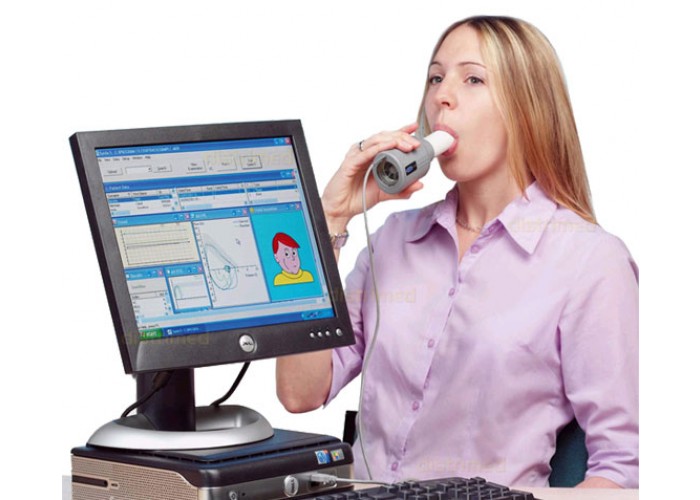
26 Oct Researchers study diagnostic error in asthma, COPD
Researchers at the University of Illinois at Chicago have been awarded a $1.5 million grant from the Agency for Healthcare Research and Quality to study the impact of diagnostic error on outcomes for pulmonary patients and the use of lung-function testing in primary care.
More than 30 million adults in the U.S. have been diagnosed with asthma or chronic obstructive pulmonary disease, which includes emphysema and chronic bronchitis, and many receive daily treatment. However, studies suggest 30 to 50 percent of these patients may have an incorrect diagnosis.
Spirometry is the nationally and internationally recommended test for diagnosing asthma and COPD, however, despite the clinical guidelines supporting the use of spirometry to identify asthma and COPD many patients do not receive the test prior to diagnosis.
Lead author, Dr Min Joo, says patients are misdiagnosed and face a two-fold risk. Firstly, patients are being medicated for a condition they may not have which can create unnecessary exposure to side effects and complications from those medications, such as pneumonia from inhaled corticosteroids. Second, their real conditions are left unidentified and untreated. This may be particularly true for minority and underserved populations who are known to have multi-morbidities and therefore have a number of potential causes for shortness of breath and other breathing-related issues.
One study found that up to 65 percent of COPD patients seen in a federally qualified health centre turned out not to have COPD when spirometry was later performed.
The Reducing Diagnostic Error to Improve Patient Safety in COPD and Asthma (REDEFINE) study is a three-year clinical trial that will enrol 60 primary care providers and 400 adults who have a diagnosis of asthma and/or COPD but have not had spirometry testing.
One group will receive spirometry testing and be provided with recommended patient education from trained community health workers around the time of their primary care visit. Participants in a control group will receive usual care and education from community health workers, but will not undergo spirometry testing.
Both groups will be followed for one year, at which time the control group will have a spirometry test to confirm their initial diagnosis.
To evaluate the effectiveness of the REDEFINE program, researchers will collect data on the prevalence of diagnostic error, the efficiency of the REDEFINE program’s intervention on patient-centred outcomes, and the cost of the program.
Story Source:
University of Illinois at Chicago. “Researchers study diagnostic error in asthma, COPD.” ScienceDaily. ScienceDaily, 13 October 2016.

